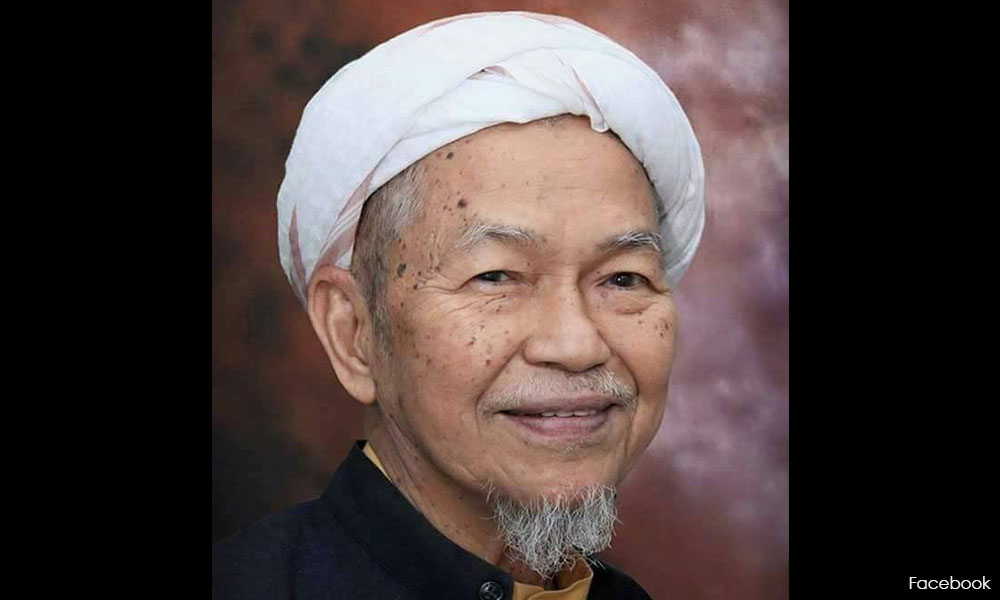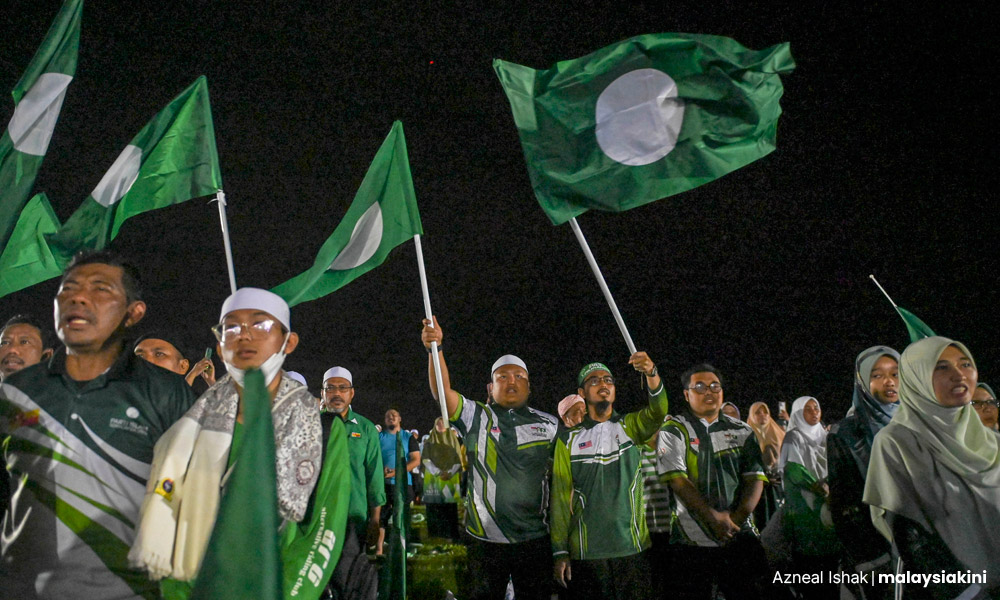Amid accusations of stirring religious and racial unrest, Abdul Hadi Awang clarified that PAS' commitment to democratic principles has not changed since its inception more than seven decades ago.
Although suffering multiple electoral defeats and challenges in its struggle to establish a government based on the policies and principles of Islam, he said PAS still "chooses the pencil and hand that marks the ballot papers and a peaceful campaign which does not sacrifice the people."
Meanwhile, the PAS president, in an article published in Harakah titled “PAS chooses democracy over demonstrations”, also recalled the party's past ties with those who are now its political foes.
Referring to the Reformasi movement following the sacking of Anwar Ibrahim from the government in 1998, Hadi (above) said PAS did not “fully oppose" street demonstrations but never misused them.
During that era, PAS was helmed by Fadzil Noor, who died in 2002, and its influential spiritual leader, the late Nik Abdul Aziz Nik Mat. Hadi was the second in command.

According to Hadi, when PAS withdrew from the alliance then, it “became clear that its strength was used for a wrong agenda.”
“The PAS machinery was utilised in the general election to ensure victories for its allies in the (now defunct) Barisan Alternatif and Pakatan Rakyat…
“PAS members have sacrificed much in wealth and effort for friendship while at the same time, remaining patient with the actions and statements contradictory to the principles and concept of an Islamic struggle,” he added.
In the beginning, Hadi said PAS adopted the approach of tahaluf siyasi, which is to cooperate with others, including peaceful non-Muslim groups.
“However, this cooperation was reconsidered when others violated the principles and concept of an Islamic struggle,” he added.
Following this, PAS adopted a different approach called ta‘awun siyasi.
Unite the Muslims
Since its formation in 1951, Hadi said PAS has always chosen the parliamentary democracy approach and recounted that he had taken this message to the international arena, where he had differing views with the late Egyptian scholar Yusuf al-Qaradawi, who supported the Arab Spring.
“The argument I put forth was that taking a hardline approach, such as street protests, can spark off clashes with the police and armed forces from the same faith in the same country.
“This can lead to a civil war which is a proxy for foreign quarters to the point of being willing to bomb your own mosques. This eventually happened in Arab countries, except for those which were invaded such as Palestine, Afghanistan and Iraq,” he added.

Hadi said when a group of extremists came out with a book in the Arabic language banning elections, he penned a book titled “Islam and Democracy” to counter the arguments.
Elaborating on national politics, Hadi said PAS embraced the ta‘awun siyasi approach, which is to first unite the Muslims, followed by the participation of non-Muslims who are not extreme until it “succeeded in taking over the government after the 14th general election as well as establishing Muafakat Nasional dan Perikatan Nasional (PN).”
“Umno was forced to bear the consequences for leaving the suggested approach, suffering a crushing defeat in the 15th general election.
“Unfortunately, there are those in Umno who prefer to be with the liberal group who are not committed to (Islamic) principles and non-Muslim groups who are extreme, because of prioritising their personal agenda over the interests of religion, race and motherland,” he added.
Hadi also criticised those attempting to create friction between PAS and the rulers, saying this was the tactic of colonialists to preserve their powers.
In 2020, PAS became part of the ruling government through a political coup comprising Umno, Bersatu and defectors from Pakatan Harapan dubbed the Sheraton Move, which Hadi had admitted to initiating. This led to the birth of PN.
However, Umno later orchestrated a counter-coup and severed ties with PN and PAS.
In the last general election, which led to a political deadlock, PAS emerged as one of the biggest victors bagging more than 40 seats. - Mkini




No comments:
Post a Comment
Note: Only a member of this blog may post a comment.